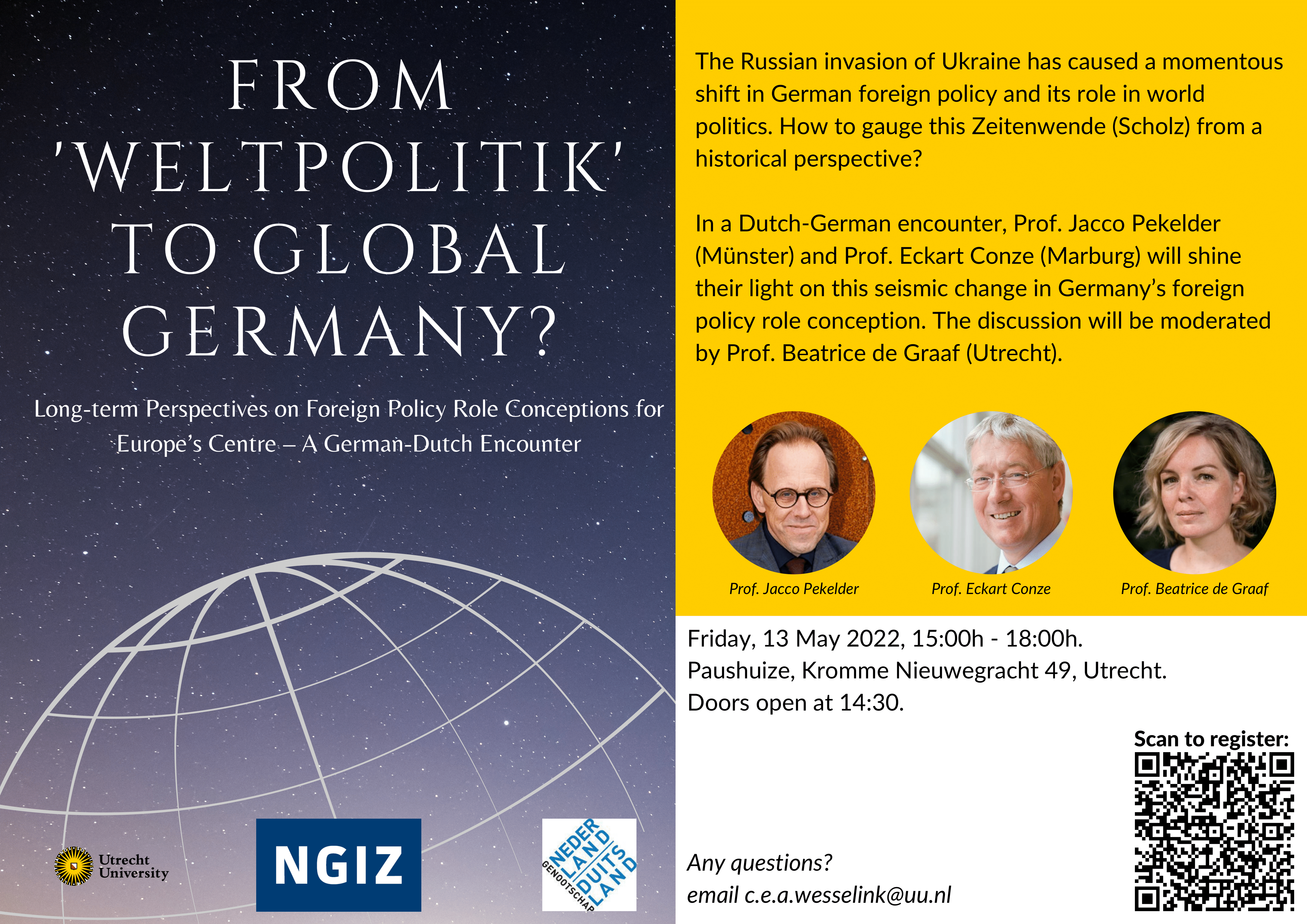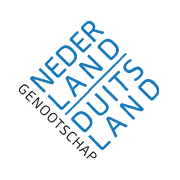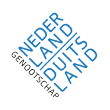
From Weltpolitik to Global Germany? Long-term Perspectives on Foreign Policy Role Conceptions for Europe’s Centre – A German-Dutch Encounter between Eckart Conze (Marburg) and Jacco Pekelder (Münster), moderated by Beatrice de Graaf (Utrecht)
From Weltpolitik to Global Germany? Long-term Perspectives on Foreign Policy Role Conceptions for Europe’s Centre – A German-Dutch Encounter between Eckart Conze (Marburg) and Jacco Pekelder (Münster), Moderated by Beatrice de Graaf (Utrecht)
Calls for German leadership have become a prominent feature of European and international politics. Over the last decade, with US leadership fading, China on the rise, and authoritarianism spreading, the necessity of finding collective European and global solutions to financial, environmental, and other global challenges has put Berlin in the spotlight of international politics.
German leadership?
In part, German governments have stepped up and shown initiative, but reluctance to take up a leadership role remains strong among Germany’s politicians and citizens. Of course, this hesitancy is founded in history, but structural features of German relations with the outside world may also play a role. The only way to find out is through long-term perspectives on foreign policy role conceptions for Europe’s center.
Dutch-German encounter
This is exactly what the German-Dutch encounter, organized by NGIZ Utrecht, between German historian Eckart Conze (Marburg University) and former Utrecht historian Jacco Pekelder (University of Münster) will offer. On 13 May 2022 they will present their views on how, from 1815 until the 21st century, German and non-German politicians and publicists conceived of the foreign policy role a united Germany would – ideally – play for Europe and the world. They will take us from a fragmented Germany meant by the 1815 Vienna Congress to function as a passive balancer and the pipedream of colonial power of the 1871 German Empire to the postwar Europeanized Federal Republic and the global economic player that Germany evolved in the post-Cold War era. What dreams and nightmares, what hopes and anxieties did Germans and outsiders project on Europe’s central polity, and how do these conceptions still influence the present and the future?
After brief introductions by Conze and Pekelder, Beatrice de Graaf (Utrecht University) will open the debate and moderate the discussion with students and researchers of Utrecht University. Drinks will conclude this afternoon.
The symposium is organised by the Nederlands Genootschap Internationale Zaken-Utrecht (NGIZ), in collaboration with the Genootschap Nederland-Duitsland and the History of International Relations department of Utrecht University.
Program
14:30 doors open (coffee/tea available)
15:00 Opening by prof. Beatrice de Graaf
15:05 Lecture by prof. Jacco Pekelder
15:25 Lecture by dr. Eckart Conze
15:45 Discussion led by prof. De Graaf
16:45 Drinks
18:00 End
__________________________________________________________________________________________
Voertaal: Engels
Aanmelding: register in advance for the symposium

